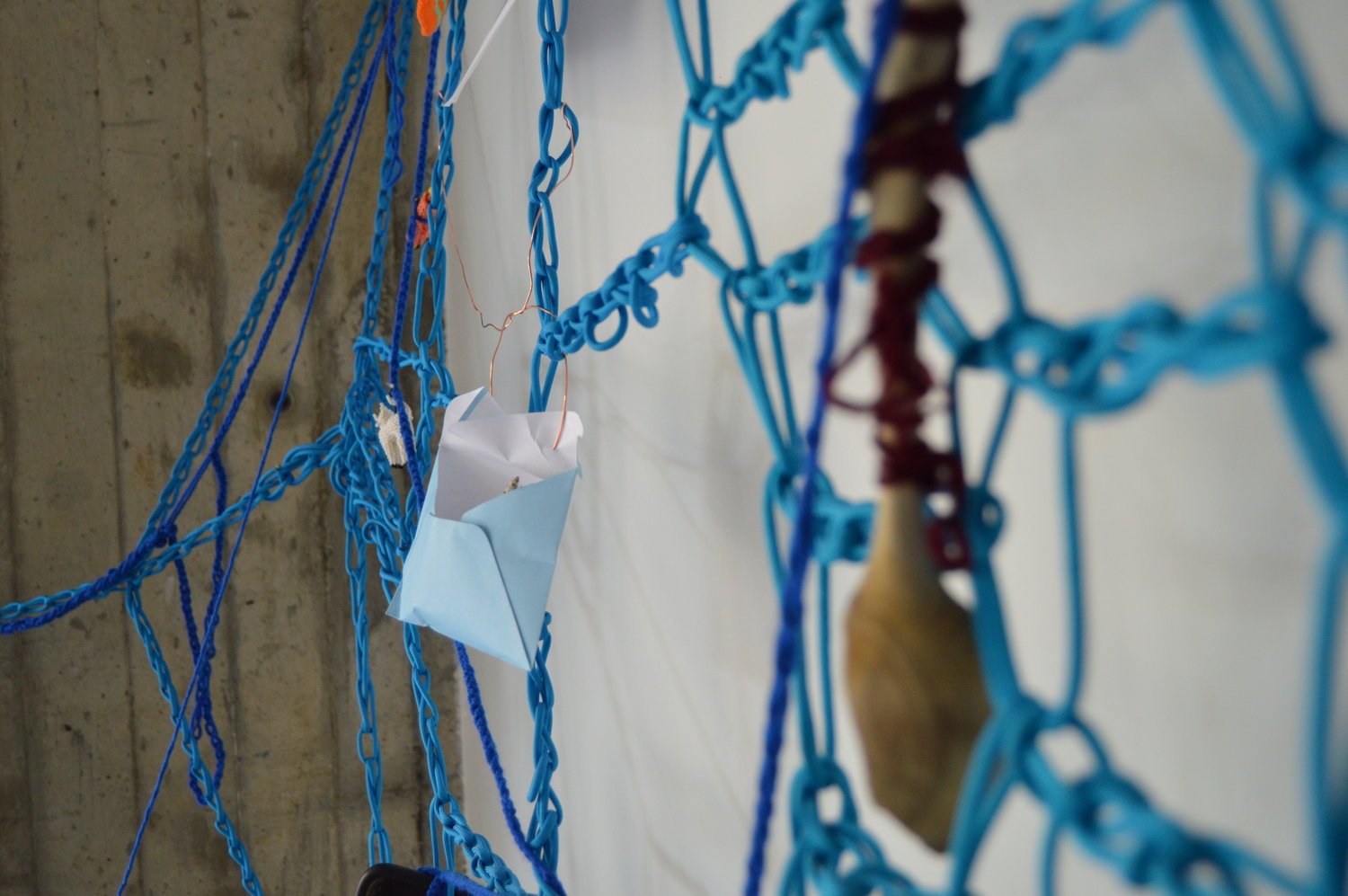Projects
HS Collab supports and/or runs several major transdisciplinary research projects, including the following:
From left to right: Heather Ross, Marisa Duarte, Jacque Wernimont, Marika Cifor, Patricia Garcia, and Jessica Rajko.
Border Quants
Border Quants is a collective of artists and scholars conducting research related to digital human rights, personal data protection, and decolonial approaches to data use. The collaborating artists include Jessica Rajko, Marisa Elena Duarte, Jacqueline Wernimont, Patricia Garcia, Heather Ross, and Marika Cifor. "Border Quants" investigates the following questions:
- What is the long history of uses of data with regard to cycles of oppression and discrimination?
- What are decolonizing approaches to using and creating data, algorithms, and interfaces?
- How do we perform data and how does data perform us?
vibrant lives
Globally, people produce 2.5 quintillion (10^18) bytes of data per day. That’s roughly 3.5 million bytes of data per person, per day. Despite this torrential production, many people are only dimly aware of the volume and content of their own data production. Governments are sweeping up this information, all while arguing that such activity logging is benign, or even beneficial, surveillance. Nevertheless, it is clear that this is a highly valued (monetized) part of our lived experience. Critically commenting on this use of personal data, Vibrant Lives gives audiences a real-time sense of their own voluminous “data shed” (the data that we share as a part of everyday life). By blending vibrotactile interfaces for feeling one’s own data shed with an immersive performance installation, we bring attention to the boundaries erected by ideas of disembodied, abstracted, “immaterial” metadata, and people.
Eugenic Rubicon
Many people are surprised to learn that in the 20th century over 60,000 people in the United States, mainly patients in state asylums and hospitals, were sterilized based on eugenics laws. Eugenics, the effort to shape and limit populations through sterilization and other forms of reproductive control, was popularized and institutionalized in 20th century America. While eugenics laws have largely been struck down and/or removed, the legacies of these practices have shaped communities and relationships between communities throughout the U.S. This digital resource draws from and complements the demographic and social science research on eugenic sterilization in California being carried out by the Sterilization and Social Justice Lab at the University of Michigan. Working with a unique resource -- nearly 50,000 patient records from California institutions from the period 1921 to 1953 -- our project seeks to make this history visible.


